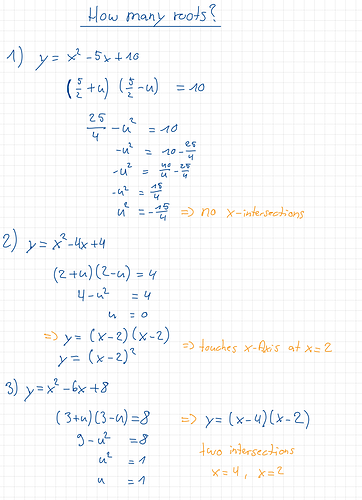In this lecture we looked at quadratic equations that have less than two roots and found a quick way of checking this using the method we learnt in the previous lecture.
For your challenge, take the following 3 equations and work out how many roots they have;
- y = x^2 - 5x + 10
- y = x^2 - 4x + 4
- y = x^2 - 6x + 8
Post your answer below and remember to use spoiler tags.




